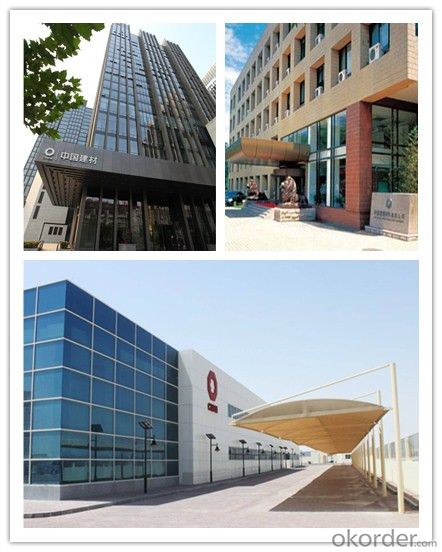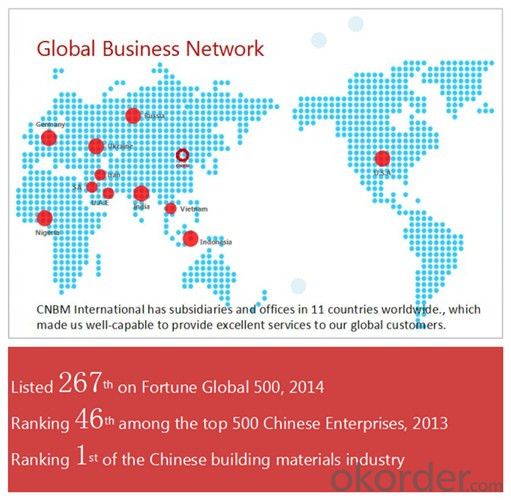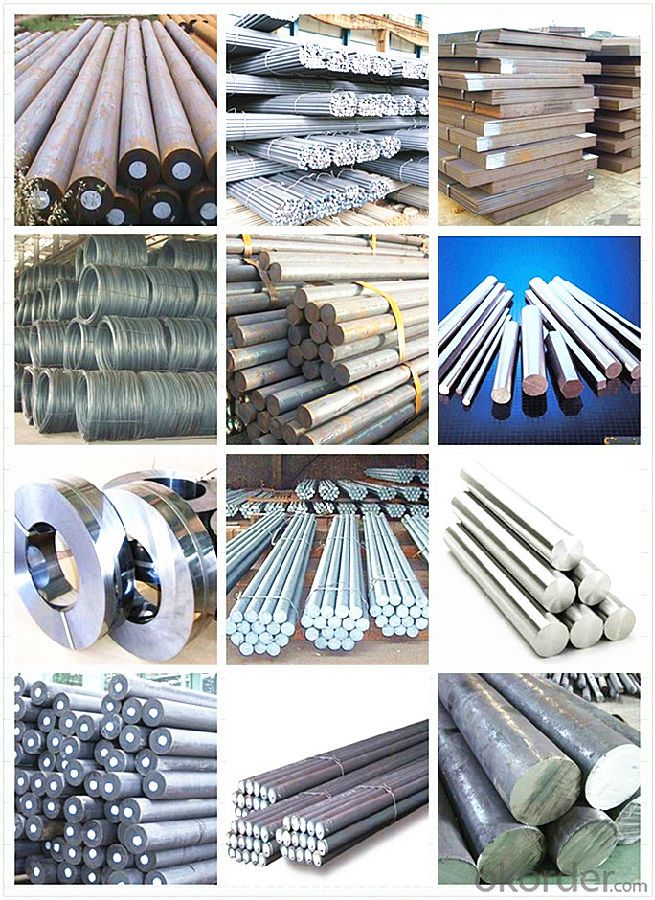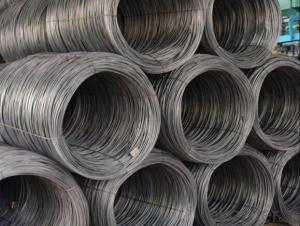Grade SAE1008B/1012B/1018B/1022B Hot Rolled Steel Wire Rod in Coils
- Loading Port:
- Tianjin
- Payment Terms:
- TT OR LC
- Min Order Qty:
- 3 m.t.
- Supply Capability:
- 10000 m.t./month
OKorder Service Pledge
Quality Product, Order Online Tracking, Timely Delivery
OKorder Financial Service
Credit Rating, Credit Services, Credit Purchasing
You Might Also Like
Item specifice
Type:
Carbon Steel,Spring Steel,Bearing Steel,Gear Steel,Deformed Steel,Stainless Steel,Alloy Steel
Shape:
Steel Coil,Steel Sheet,Steel Wire Rod,Steel Flat Bar,Steel Square Bar,Steel Angle,Steel Round Bar,Steel Billets
Technique:
Hot Rolled,Cold Rolled,Cold Drawn,ERW,Forged,Saw,Extruded,EFW,Spring
Surface Treatment:
Galvanized,Coated,Copper Coated,Color Coated,Oiled,Dry,Chromed Passivation,Polished,Bright,Black,PVDF Coated
Certification:
ISO,SGS,BV,IBR,RoHS,CE,API,BSI,UL
Thickness:
6.5mm-12mm
Width:
6.5mm-12mm
Length:
In coils
Outer Diameter:
6.5mm-12mm
Net Weight:
2m.t.
Packaging:
Seaworthy packaging
Grade SAE1008B/1012B/1018B/1022B Hot Rolled Steel Wire Rod in Coils
Detailed Information of the Grade SAE1008B/1012B/1018B/1022B Hot Rolled Steel Wire Rod in Coils
| Name | Hot Rolled High Carbon Wire Rod |
| Shape | Round Bar/Square Bar/Flat Bar/Plate/Wire |
| Standard | GB/ASTM/SAE/AISI/DIN/JIS/EN/BS |
| Surface Treatment: | Black/Peeling/Polished/Machined |
| Delivery Condition: | Hot Rolled or Forged/Peeled or Black Surface |
| Test | SGS/UT 100% Elements Testing |
| Certificate: | ISO/Mill Certificate |
| Service: | 24 hours online service / |
| more than 20 years trading and manufacture | |
| Quality Assurance: | the third party inspection, such as SGS, BV, TUV…etc. is acceptable |
| Packaging Details: | Seaworthy Packaging or as per customer's packing instruction |
Chemical Composition of the Grade Grade SAE1008B/1012B/1018B/1022B Hot Rolled Steel Wire Rod in Coils
| Grade | Chemical Composition(%) | |||||
| C | Mn | Si | S | P | B | |
| SAE1008 | 0.1max. | 0.3~0.50 | 0.15max | 0.050max | ≤0.040 | >0.0008 |
| Mechanical properties | ||||||
| Yield strength(N/mm2) | Tensile strength(N/mm2) | Elongation(%) | ||||
| 250-280 | 350-380 | ≥32 | ||||
Company Introduction the Grade Grade SAE1008B/1012B/1018B/1022B Hot Rolled Steel Wire Rod in Coils
CNBM International Corporation is the most import and export platform of CNBM group(China National Building Material Group Corporation) ,which is a state-owned enterprise, ranked in 270th of Fortune Global 500 in 2015.
With its advantages, CNBM International are mainly concentrate on Cement, Glass, Iron and Steel, Ceramics industries and devotes herself for supplying high quality series of refractories as well as technical consultancies and logistics solution.


| After-sale service | CNBM provides the services and support you need for every step of our cooperation. We’re the business partners you can trust; you can relax and get on with doing business. |
| For any problem, please kindly contact us at any your convenient time, we’ll reply you in our first priority within 24 hours | |
| Advantages | Industry experience over 20 years. |
| Shipment of goods -More than 70 countries worldwide. | |
| The most convenient transport and prompt delivery. | |
| Competitive price with best service. | |
| High technical production line with top quality products. | |
| High reputation based on best quality products. |
Packaging & Delivery the Grade SAE1008B/1012B/1018B/1022B Hot Rolled Steel Wire Rod in Coils
| Packaging Detail | Sea worthy packing /as per customer's packing instruction |
| Delivery Detail | 15 ~ 40 days after receiving the deposit |
Products Show

FAQ:
| Are you a trader or manufacturer? | Manufacturer |
| What’s the MOQ? | 3 metric ton |
| What’s your delivery time? | 15-35 days after downpayment received |
| Do you Accept OEM service? | Yes |
| what’s your delivery terms? | FOB/CFR/CIF |
| What's the Payment Terms? | 30% as deposit,70% before shipment by T/T |
| Western Union acceptable for small amount. | |
| L/C acceptable for large amount. | |
| Scrow ,Paybal,Alipay are also ok | |
| Why choose us? | Chose happens because of quality, then price, We can give you both. |
| Additionally, we can also offer professional products inquiry, products knowledge train (for agents), smooth goods delivery, excellent customer solution proposals. | |
| What's your available port of Shipment? | Main Port, China |
| What’s your featured services? | Our service formula: good quality+ good price+ good service=customer's trust |
| Where are your Market? | Covering more than 160 countries in the world |
- Q:How is special steel used in the mining supply chain?
- Special steel is used in various components and equipment used in the mining supply chain. It is commonly used in the construction of heavy machinery, such as mining trucks, excavators, and drilling rigs, as well as in the fabrication of conveyor belts and crushing equipment. Additionally, special steel is utilized in the production of wear-resistant parts, such as grinding balls and liners, which are crucial for efficient ore processing. Its exceptional strength, durability, and resistance to extreme conditions make it an essential material in the mining industry, ensuring safe and efficient operations throughout the supply chain.
- Q:Can special steel be used in aerospace turbine components?
- Yes, special steel can be used in aerospace turbine components. Special steel, also known as high-performance alloy steel, possesses excellent mechanical properties such as high strength, hardness, and temperature resistance. These properties make it suitable for use in aerospace turbine components, which are subjected to extreme conditions such as high temperatures, pressures, and stress. Aerospace turbine components, including blades, vanes, and disks, are critical parts of jet engines that require materials capable of withstanding the harsh operating conditions. Special steel alloys, such as nickel-based superalloys, are commonly used in these applications due to their ability to maintain their strength and integrity at elevated temperatures. Additionally, the high strength-to-weight ratio of special steel allows for the production of lightweight yet durable turbine components, contributing to the overall efficiency and performance of the aerospace systems. Moreover, special steel alloys can also exhibit excellent resistance to corrosion, oxidation, and fatigue, which are crucial factors in the long-term reliability and safety of aerospace turbine components. These materials undergo rigorous testing and certification processes to ensure they meet the stringent standards and requirements set by the aviation industry. In conclusion, special steel is indeed a suitable material for aerospace turbine components due to its exceptional mechanical properties, high temperature resistance, and ability to withstand extreme conditions. It plays a vital role in ensuring the reliability, efficiency, and safety of turbine systems used in aerospace applications.
- Q:How does special steel contribute to the telecommunications machinery industry?
- Special steel plays a crucial role in the telecommunications machinery industry by providing high strength, durability, and corrosion resistance. It is used in the manufacturing of various components such as towers, antennas, cables, and connectors, ensuring reliable and long-lasting infrastructure for communication networks. Additionally, special steel's exceptional electrical conductivity properties make it ideal for transmitting signals with minimal loss. Overall, special steel contributes to the telecommunications machinery industry by enabling efficient and reliable communication systems.
- Q:What is the difference between special steel and regular steel?
- Special steel refers to a specific type of steel that has been enhanced with additional alloying elements or has undergone specialized treatments to enhance its strength, durability, or other desired properties. Regular steel, on the other hand, refers to common or standard steel that does not possess these additional features or improvements. The key difference lies in the composition and processing, as special steel is engineered to meet specific requirements for particular applications, such as high-temperature resistance, corrosion resistance, or increased hardness.
- Q:What are the different mechanical defects in special steel?
- Special steel can be compromised in its overall strength and performance by various mechanical defects. The most common defects are: 1. Inclusions: These are foreign particles or impurities found in the steel, including oxides, sulfides, or other non-metallic materials. Inclusions weaken the steel, reducing its ductility and making it more prone to cracking or failure. 2. Segregation: Uneven distribution of alloying elements within the steel is known as segregation. This can cause variations in hardness, strength, and other mechanical properties throughout the material. Segregation creates localized areas of weakness, increasing the risk of failure under stress. 3. Cracks: Special steel can develop cracks due to factors like improper cooling, excessive heat, or high levels of stress. These cracks significantly reduce the structural integrity of the steel and may spread over time, leading to catastrophic failure. 4. Laminations: Thin layers or sheets of material, called laminations, can form during the manufacturing process. They occur due to improper rolling or forging, or the presence of inclusions. Laminations weaken the steel and cause premature failure under load. 5. Decarburization: Exposure to high temperatures or oxidation causes decarburization, which is the loss of carbon from the steel's surface. This results in a layer of softer, lower carbon steel on the surface, reducing the material's overall hardness and strength. 6. Grain growth: Over time, the individual crystals within the steel (grains) can grow larger, leading to grain growth. High temperatures, prolonged stress exposure, or improper heat treatment can cause this. Grain growth reduces the steel's strength and toughness, making it more susceptible to deformation or fracture. It is important to understand that the severity of these mechanical defects can vary and is influenced by factors such as the manufacturing process, quality control measures, and the specific composition of the special steel. Regular inspection, testing, and adherence to proper handling and processing techniques are crucial in minimizing these defects and ensuring the desired mechanical properties of special steel.
- Q:What are the different methods of surface ion nitriding for special steel?
- Surface ion nitriding of special steel can be achieved through various methods. These methods encompass: 1. Utilizing DC Plasma Nitriding: Employing direct current (DC) plasma to ionize nitrogen gas, a plasma atmosphere is created. By subjecting the special steel to the plasma chamber and applying high voltage, the ions are accelerated towards the steel's surface, resulting in nitriding. 2. Adopting RF Plasma Nitriding: Similar to DC plasma nitriding, RF (Radio Frequency) plasma nitriding employs a radio frequency power supply to generate plasma instead of direct current. This method allows for better control over the nitriding process and can accommodate more intricate geometries. 3. Employing Pulse Plasma Nitriding: By applying short pulses of high voltage to the steel surface, a plasma discharge is created. These pulses are repeated at regular intervals, enabling precise control over the nitriding process. Pulse plasma nitriding is commonly used for steels with sensitive properties that may be affected by prolonged exposure to high temperatures. 4. Combining Plasma Assisted Nitriding: This method combines plasma nitriding with other surface treatment techniques, such as physical vapor deposition (PVD) or chemical vapor deposition (CVD). Initially, the steel is coated with a thin layer of reactive material, followed by nitriding in a plasma atmosphere. This combination enhances the surface properties of the special steel, such as wear resistance or corrosion resistance. 5. Employing Glow Discharge Nitriding: This method involves placing the special steel in a chamber filled with a nitrogen-rich gas, such as ammonia. Applying high voltage creates a glow discharge, which ionizes the gas and generates nitrogen ions that diffuse into the steel's surface. Glow discharge nitriding is commonly employed for small parts or components with complex shapes. It is crucial to consider factors such as desired properties, steel geometry, and application-specific requirements when selecting the most suitable method for surface ion nitriding of special steel.
- Q:How does surface treatment enhance the performance of special steel?
- Surface treatment enhances the performance of special steel by improving its resistance to corrosion, wear, and fatigue. This treatment creates a protective layer on the surface of the steel, which acts as a barrier against environmental factors such as moisture, chemicals, and abrasive substances. It also enhances the steel's hardness, smoothness, and adhesion, leading to improved durability, strength, and longevity. Additionally, surface treatment can provide aesthetic benefits, such as improved appearance and color options, further enhancing the overall performance of special steel.
- Q:What are the key alloying elements used in special steel?
- The key alloying elements used in special steel vary depending on the specific application and desired properties. However, some of the commonly used alloying elements in special steel include chromium, nickel, molybdenum, vanadium, tungsten, and cobalt. Chromium is often added to improve the steel's corrosion resistance and to enhance its hardness and wear resistance. Nickel is another important alloying element that increases the steel's strength, toughness, and corrosion resistance. Molybdenum is commonly used to improve the steel's high-temperature strength, creep resistance, and resistance to corrosion by certain chemicals. Vanadium is added to increase the steel's strength, toughness, and wear resistance, particularly at high temperatures. Tungsten is another element used for improving the steel's high-temperature strength and wear resistance. Cobalt is often added to enhance the steel's strength and toughness, especially at elevated temperatures. These alloying elements are carefully selected and added in specific proportions to achieve the desired properties for different applications, such as in aerospace, automotive, energy, and tooling industries. By incorporating these alloying elements, special steel can be tailored to meet specific performance requirements, making it suitable for a wide range of demanding applications.
- Q:What are the different applications of special steel in the construction industry?
- Special steels have a wide range of uses in the construction industry, serving as versatile materials. Structural components are one of the main applications of special steel in construction. Buildings, bridges, and infrastructure projects that require exceptional strength and durability often use special steels, including high-strength low-alloy (HSLA) steel and weathering steel. Apart from structural uses, special steel is extensively employed in pipeline construction. This is particularly significant for oil and gas pipelines, where corrosion resistance and the ability to withstand high-pressure conditions are vital. Stainless steel, for example, is commonly chosen due to its outstanding resistance to corrosion, which makes it ideal for harsh environments. Another important application of special steel in construction is the production of reinforcing bars, also known as rebars. Reinforcing steel bars reinforce concrete structures like buildings, bridges, and highways by adding strength to withstand tension forces. Special steel rebars, such as micro-alloyed steel or carbon steel, are designed specifically to enhance the durability and structural integrity of concrete structures. Furthermore, special steel is extensively used in the construction of high-rise buildings and skyscrapers. The exceptional strength, ductility, and fire resistance properties of special steels like carbon steel or alloy steel make them perfect for constructing tall structures capable of withstanding heavy loads and resisting fire incidents. Special steel also finds application in the construction of equipment and machinery used in the construction industry. For instance, high-speed steel (HSS) is commonly utilized in manufacturing cutting tools, drill bits, and saw blades, which are essential for various construction activities. HSS possesses exceptional hardness, wear resistance, and high-temperature strength, making it suitable for heavy-duty cutting and drilling applications. In conclusion, special steel is an essential material in the construction industry due to its superior strength, durability, corrosion resistance, and fire resistance properties. It serves various purposes in structural components, pipelines, reinforcing bars, high-rise buildings, and construction machinery. Special steel ensures the safety, longevity, and reliability of construction projects, making it indispensable in the industry.
- Q:How is special steel used in the construction manufacturing process?
- Special steel is commonly used in the construction manufacturing process due to its unique properties such as high strength, durability, and resistance to corrosion. It is used for various applications, including structural components, reinforcement bars, and fasteners. Special steel enhances the overall structural integrity of buildings, bridges, and other construction projects, ensuring their longevity and safety.
1. Manufacturer Overview |
|
|---|---|
| Location | |
| Year Established | |
| Annual Output Value | |
| Main Markets | |
| Company Certifications | |
2. Manufacturer Certificates |
|
|---|---|
| a) Certification Name | |
| Range | |
| Reference | |
| Validity Period | |
3. Manufacturer Capability |
|
|---|---|
| a)Trade Capacity | |
| Nearest Port | |
| Export Percentage | |
| No.of Employees in Trade Department | |
| Language Spoken: | |
| b)Factory Information | |
| Factory Size: | |
| No. of Production Lines | |
| Contract Manufacturing | |
| Product Price Range | |
Send your message to us
Grade SAE1008B/1012B/1018B/1022B Hot Rolled Steel Wire Rod in Coils
- Loading Port:
- Tianjin
- Payment Terms:
- TT OR LC
- Min Order Qty:
- 3 m.t.
- Supply Capability:
- 10000 m.t./month
OKorder Service Pledge
Quality Product, Order Online Tracking, Timely Delivery
OKorder Financial Service
Credit Rating, Credit Services, Credit Purchasing
Similar products
New products
Hot products
Related keywords

































